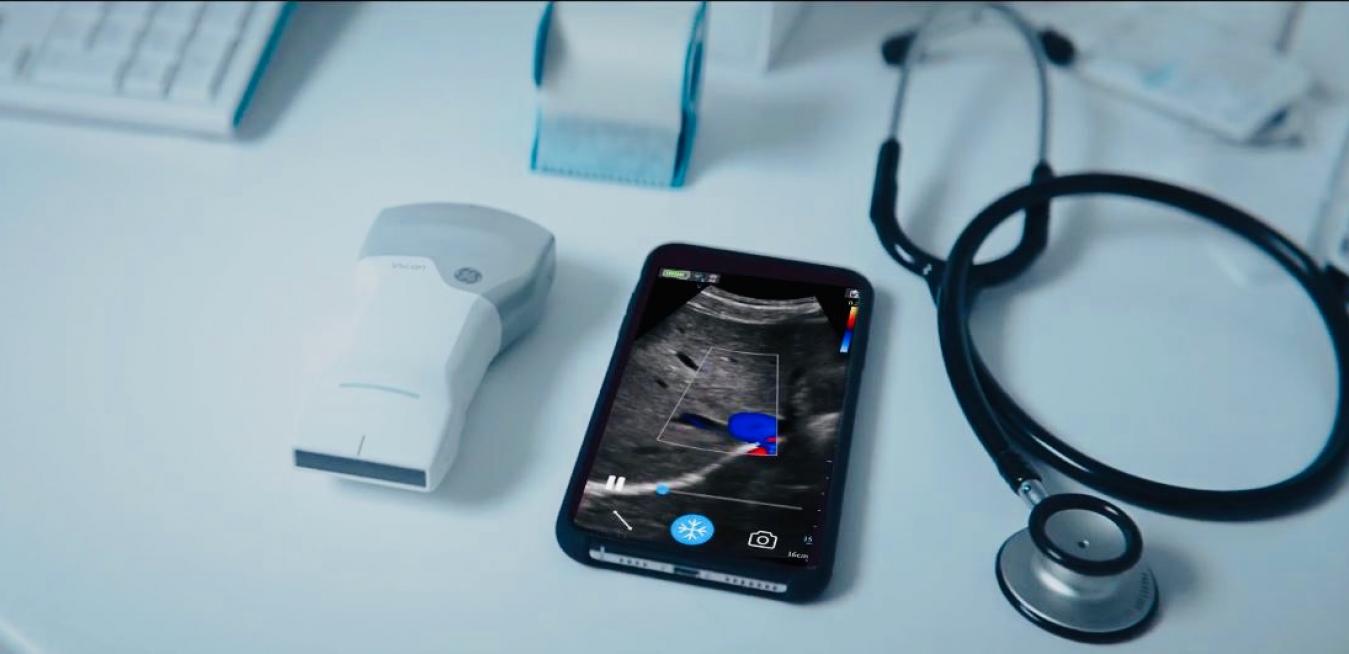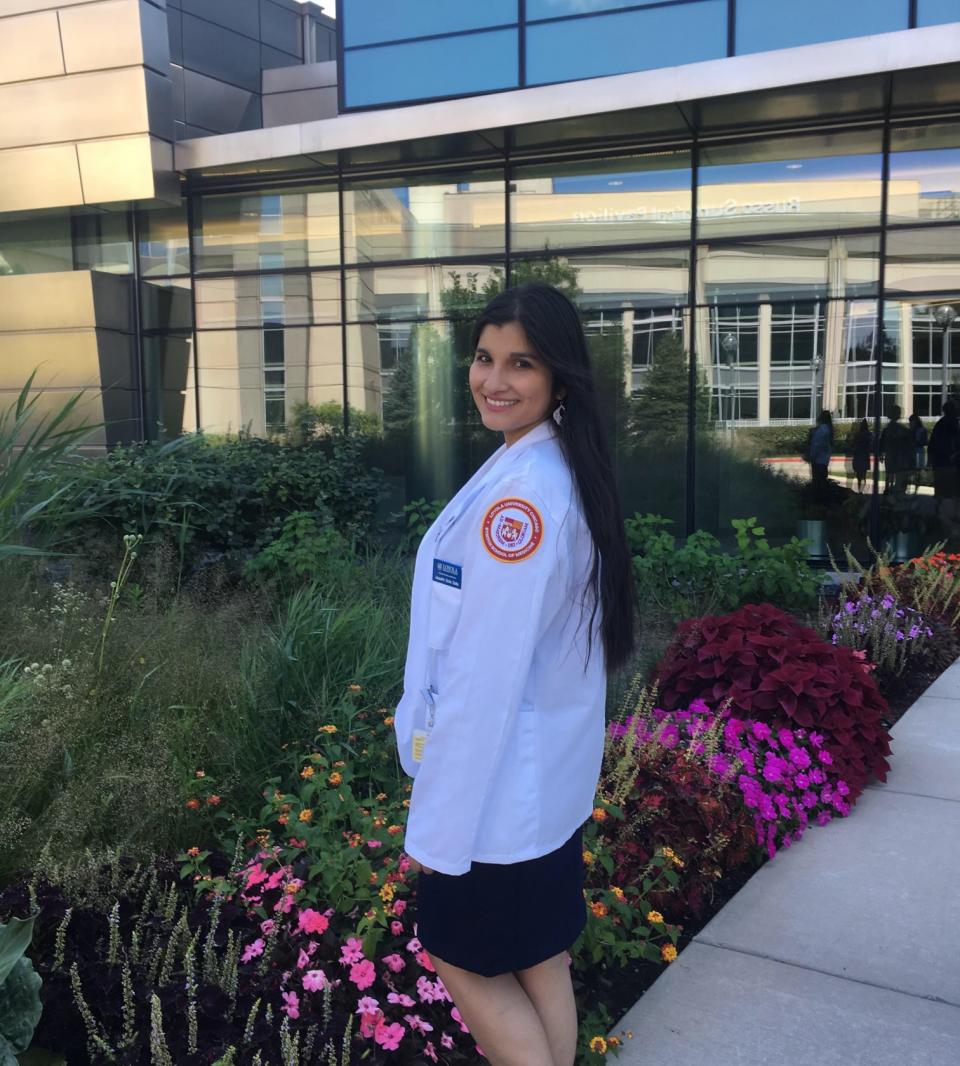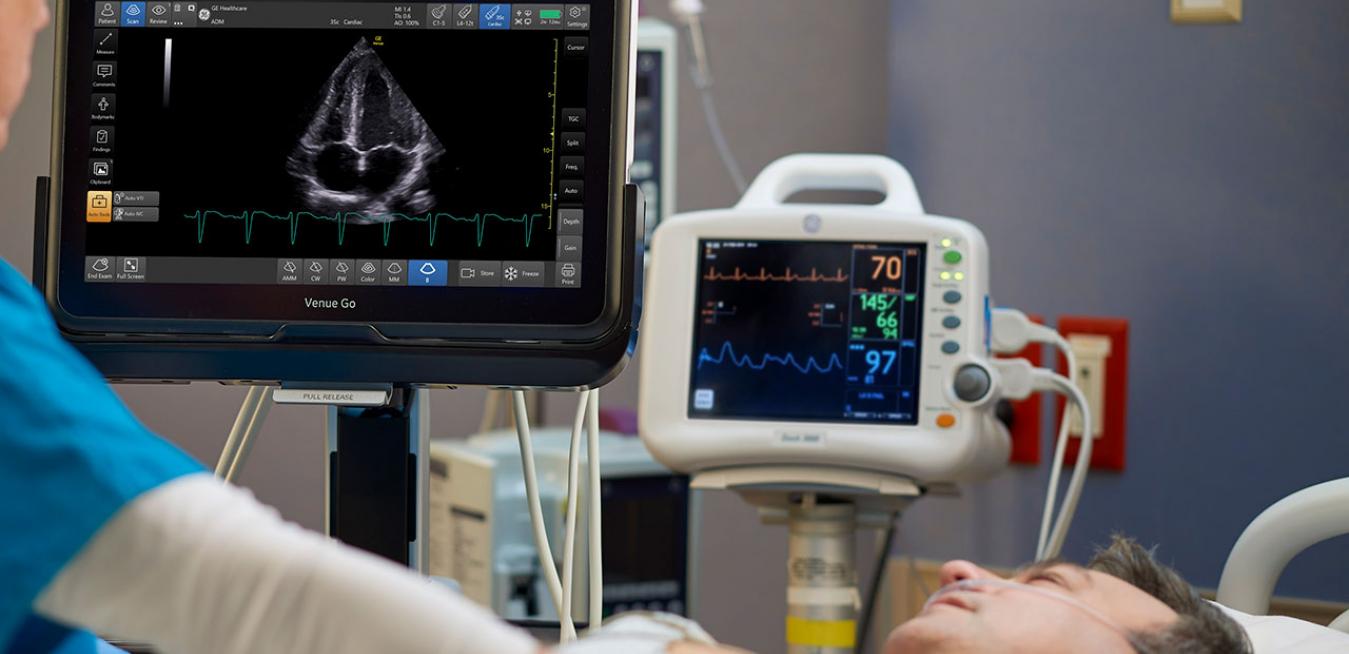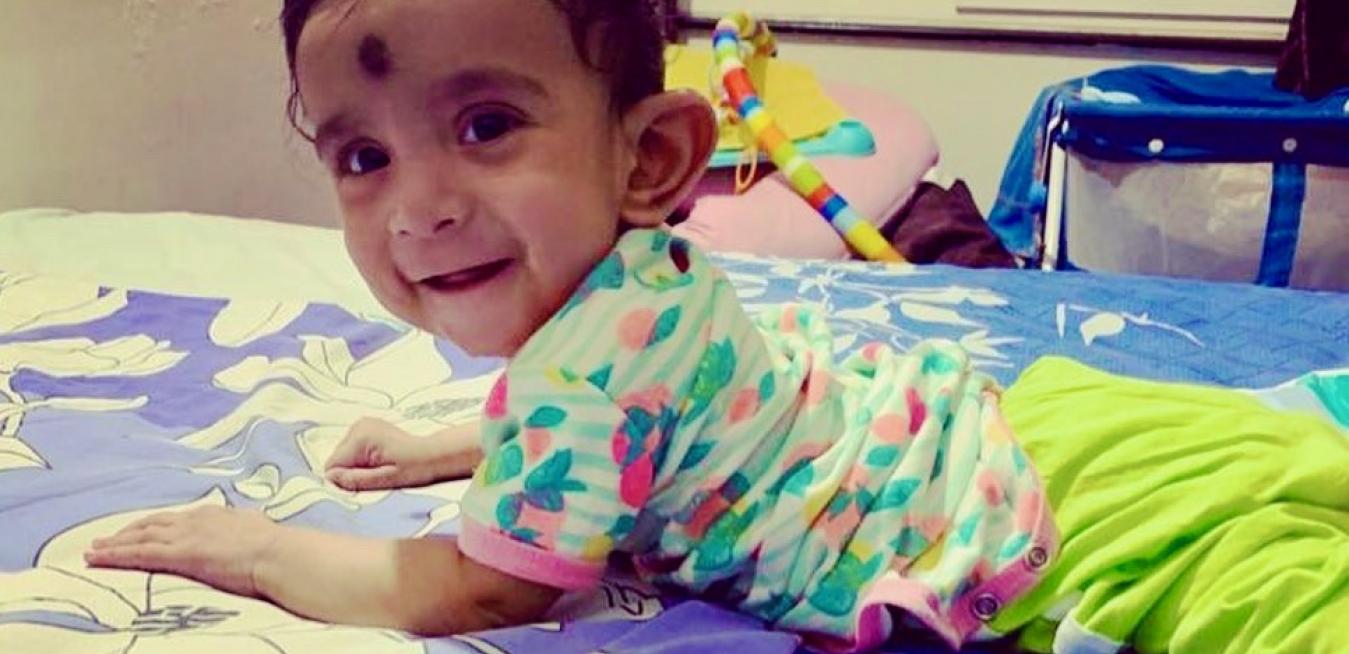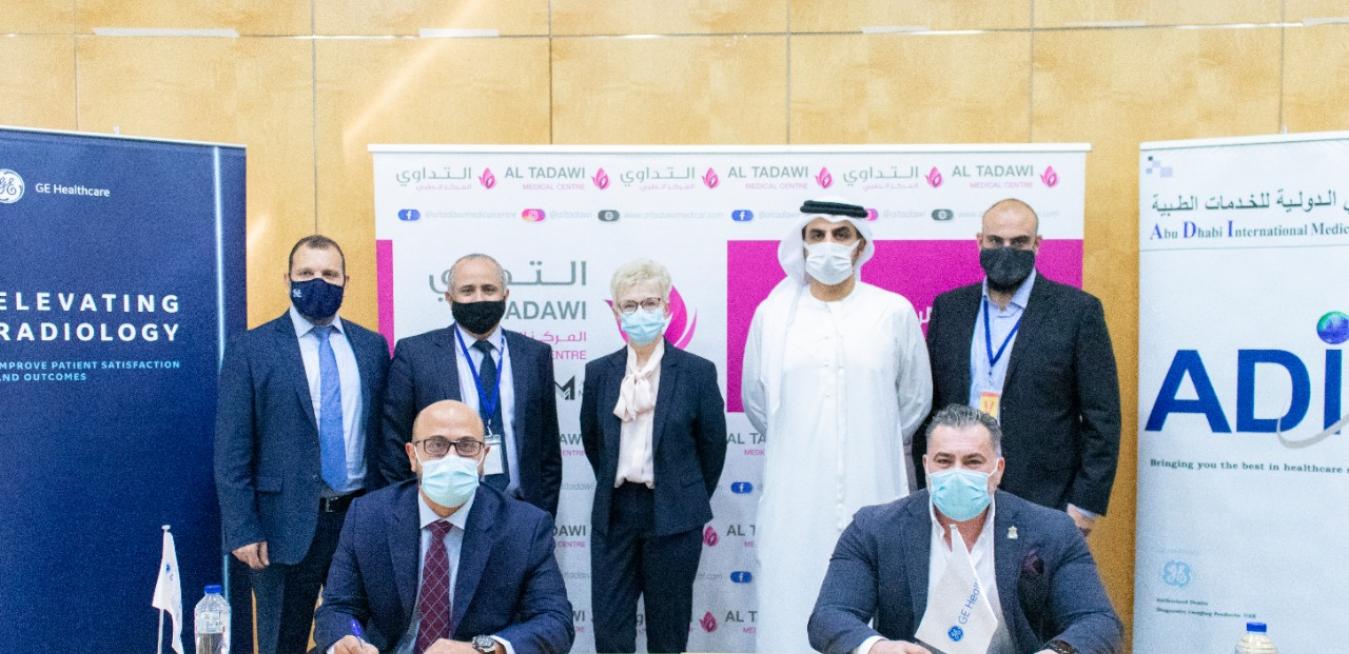Last year, Dr. Yale Tung Chen, an emergency medicine clinician in hard-hit Madrid, Spain, became one of a handful of clinicians around the world testing Vscan Air™, a handheld, wireless ultrasound scanner developed by engineers at GE Healthcare. The device, which GE Healthcare released for sale in the U.S. and Europe in March, beamed images from the ultrasound probe to an app on his smartphone, and this quickly became common practice on his daily rounds. “I’ve been using it on COVID-19 patients, scanning hearts, lungs, blocked vessels,” he says.
As an emergency medicine clinician in Madrid, Spain, Dr. Yale Tung Chen has treated many COVID-19 patients since the start of the pandemic. And when he developed last March the ominous constellation of symptoms caused by the SARS-CoV-2 coronavirus — chills, cough, low-grade fever and a nagging headache — he knew what to do. Like other people stricken by the disease, the physician quarantined at home and monitored the signs of his illness. But he also knew that his overt symptoms were not the full picture of the disease.
In 2004, Jaquelin Solis had only been in the United States for a few months when her father broke his wrist. As Spanish-speaking Peruvian immigrants, her parents hesitated to seek medical treatment. “They felt embarrassed by the fact that they were not able to communicate, and because they thought they would be a burden to the doctor,” remembers Solis, who was 10 at the time. But as her dad’s wrist swelled to outsized proportions, the family relented, headed to the hospital, and Solis appointed herself to speak for her father with limited English.
When COVID-19 hit and people stopped flying early last year, the aviation industry wasn’t the only one left in the lurch. The paucity of planes in the sky frayed vital supply chains that stretched around the world and left many businesses challenged to keep their factories running. Few had less time to find a solution than healthcare companies supplying clinicians on the pandemic’s front lines with critical equipment to diagnose and treat patients.
In honor of International Women’s Day, we celebrate amazing women who are forging innovation through technology.
Emergency physician Dr Kylie Baker is shaping the future of healthcare through point-of-care ultrasound. Her interest in point-of-care ultrasound—referred to as POCUS—extends nearly two decades, realizing back then the potential for the technology.
Like many clinicians, Dr. Leigh Ann Cashwell finds herself providing care for her own family from time to time in her small hometown in Mississippi. A few years ago, the mother of three boys was examining her 15-year-old son, Luke, with a handheld ultrasound system from GE called Vscan Extend when she came across something unexpected. “I was scanning his neck, and when I got to his thyroid, I immediately knew that there was nothing normal about what I was looking at,” said Cashwell.
Journalists relish finding stories hidden in unassuming places. For Mikey Kay, a reporter and filmmaker who set out in early 2020 to tell the story of the healthcare industry during the COVID-19 pandemic, one of those places was an orange and white building standing in a green field in the Indian state of Haryana.
Unlike many newborns, little Shriyan couldn’t spend much time with his mom in the delivery room. Doctors at the Amrita Institute of Medical Sciences in Kerala, India, rushed the critically ill boy to an operating room, where a surgeon was waiting to perform a lifesaving cardiac procedure to correct a rare but fatal heart defect. The doctors taking care of Shriyan didn’t have a crystal ball to know that he needed help. They had something more powerful: prenatal cardiac ultrasound, also known as fetal echocardiography.
Imagine a world where a genomic sequencer small enough to fit in the palm of your hand maps the DNA of a virus in mere hours. Where you can test for a variety of maladies, from skin cancer to urinary tract infections, without going to the doctor. Where monitors use digital algorithms to adjust oxygen levels for ICU patients.
Now stop imagining. Thanks to artificial intelligence, we’re quickly approaching that world.
Even before COVID-19 emerged, the Dubai Health Authority was promoting telemedicine as a valuable way to improve healthcare by giving patients easier access to the doctors they need, even when not in the same building, city or country.
